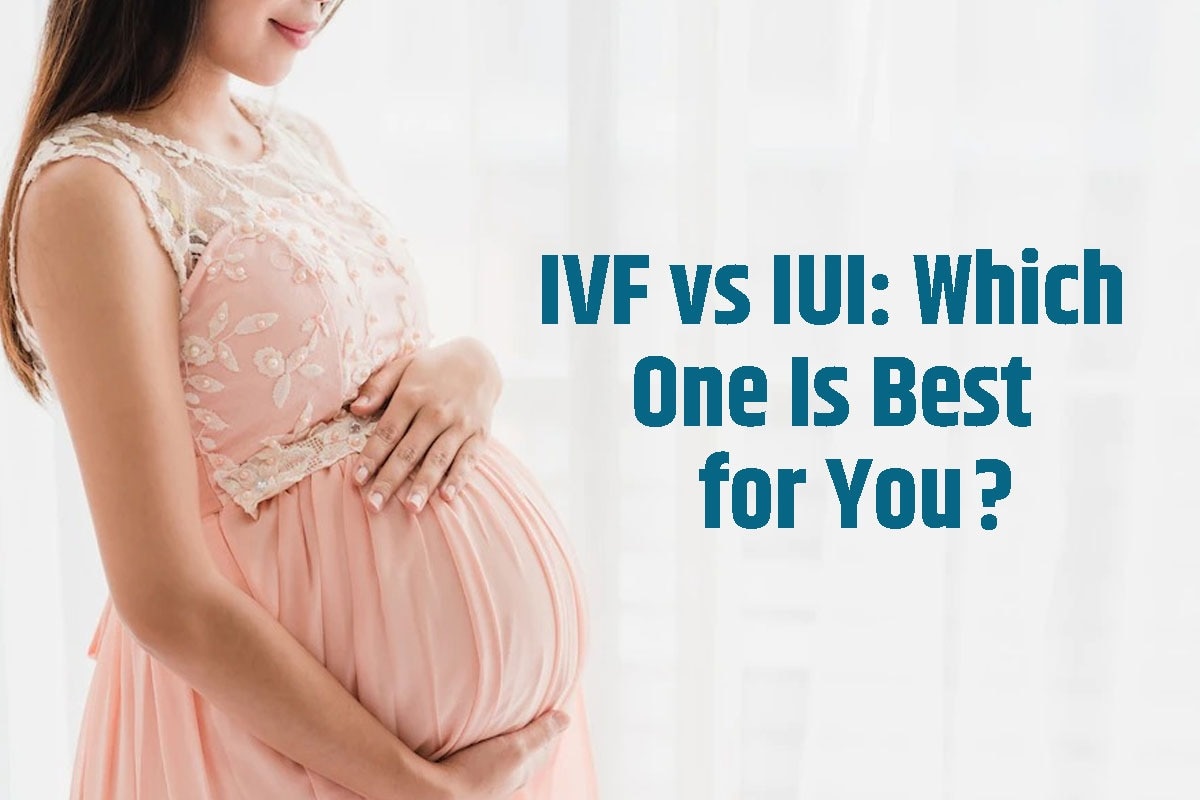Before consulting a doctor about your situation, you should be aware of the differences between IUI and IVF.
There may be several reasons for a couple’s inability to conceive naturally. While some choose treatments for infertility problems, most couples are unaware of the options. Despite how physically and emotionally stressful infertility can be, there are several options available to those who are having trouble getting pregnant.
Dr. Anuranjita Pallavi, Senior Consultant – Fertility and IVF, Apollo Fertility, Navi Mumbai says ”Depending on the demands of the couple, there are several fertility treatment options to consider. In vitro fertilization (IVF) and intrauterine insemination (IUI) are the two most widely used techniques. Also, it is essential that people understand the difference between the two or what the treatment entails, as some people are more familiar with one technique than the other. Therefore, before you consult a doctor about your situation, you should be aware of the differences between IUI and IVF.”
IVF: In IVF, a woman receives additional medication to help her produce many eggs. In an ideal situation, women produce about 15 mature eggs. The eggs are removed from the ovaries, fertilized and grown in a laboratory for a few days, and then returned to the uterus as an early stage embryo. Although this might seem like a slight distinction, it results in many considerable differences.
IUI: In IUI, to achieve fertilization, the sperm is washed, concentrated, and then delivered directly to the uterus. It is comparable to the standard conception process, in which sperm pass from the vagina through the cervix, uterus, and fallopian tubes, before entering the uterus. IUI is timed to coincide with a woman’s regular ovulation cycle, or she may take fertility drugs to increase her chances of getting pregnant.
Difference Between IUI and IVF
The main difference between IUI and IVF is that internal fertilization occurs during IUI. In other words, the sperm is injected directly into the uterus. If fertilization is successful, the embryo will also be implanted there. With IVF, fertilization occurs in a laboratory, externally, or outside the uterus. One or more successfully fertilized eggs are inserted into the woman’s uterus after the sperm and egg unite for fertilization. Subsequently, the fertilized egg must successfully implant into the lining of the uterus, leading to pregnancy and the delivery of a full-term baby or babies. Compared to IUI, IVF has better success rates. Also, IVF is much more expensive, while artificial insemination is less invasive.
IUI could be more natural and less invasive
IUI, which is much less invasive than IVF, is often used as the first step in the treatment of infertility in couples. Intrauterine insemination (IUI) involves injecting clean sperm directly into a woman’s uterus while she is fertile. This can be done with a natural cycle or, more often, in addition to taking medications (such as clomiphene citrate or letrozole). More motile sperm, which have a higher chance of fertilizing an egg, can be found in the washed sperm sample. Sperm do not have to “swim” as far to reach their destination when injected directly into the uterus. Therefore, IUI can be useful for couples who are struggling to conceive for a variety of reasons, such as their work or travel schedule or sexual dysfunction, as well as helping couples dealing with infertility issues.
To promote ovulation or increase the number of eggs that are ovulated each month, many women who have IUI are given hormones or medications. Also, the likelihood of a couple having twins or multiples increases as a result. Having twins or even more children is something that many couples undergoing fertility treatment look forward to, but in reality, having multiples will cause problems for both mother and children.
Reasons to seek IVF
For couples struggling with ovulation or unexplained infertility issues, IUI can be a good starting point. However, IUI may not be the best fertility treatment option for many couples. Couples facing problems including severe male infertility, blocked fallopian tubes, failure to conceive using IUI, and concerns about passing on specific genetic abnormalities are generally advised to undergo IVF. Therefore, pre-implantation genetic testing is an innovative scientific technique that can be used prior to IVF. Also, patients who are concerned about a genetic disorder or have experienced numerous failed IUI cycles or miscarriages may find this helpful. This method can help determine the best embryo to transplant by detecting genetic diseases or chromosomal abnormalities in the embryos.
Is IUI or IVF right for you?
The doctor is the best person to consult if a couple is trying to choose between IUI and IVF, as they will have the most knowledge about which fertility treatment option is the best. Depending on the couple’s problems, you can choose IUI or IVF. Also, the best partners for IVF are those with low sperm counts or potentially blocked fallopian tubes. The quality and quantity of a person’s ovules decrease with age, starting at age 32 and much more after age 37. Therefore, it can also be a viable alternative for people of advanced maternal age (over 35 years). Through IVF, older women can analyze their embryos to improve their chances of conceiving successfully and reduce the risk of miscarriage.
Conclution
On the other hand, IUI may be a preferable option for people who want to try a less intrusive and cheaper technique before committing to IVF. As long as the patient has at least one open fallopian tube, IUI is also considered a good starting point for patients with unexplained infertility. Also, since these people may not have a problem getting pregnant, it is often the first choice for single women using donor sperm or same-sex couples using donor sperm.
